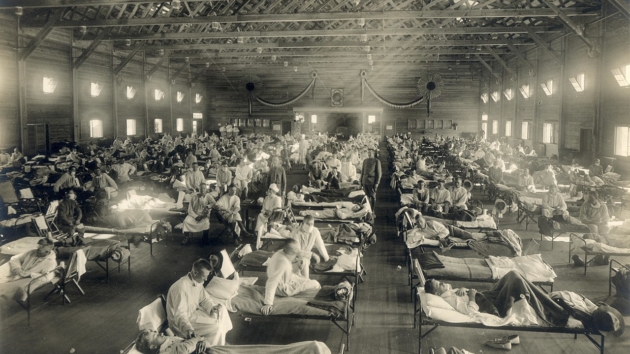After the 1918 Flue Epidemic, How Long Did People Have Immunity?
Question of the Day at Just Facts Daily:
After World War I, there was a worldwide flu epidemic that killed millions. For those that survived, how long did they maintain immunity?
What is your best guess? One year, ten years, a hundred years?
The correct answer is about 100 years.
The following information is from Just Facts Daily.
A study published by the journal Nature in 2008 found that survivors of the 1918 influenza pandemic still had immune B-cells that actively produce “highly functional, virus-neutralizing antibodies” that guard against the disease roughly 90 years later. Furthermore, scientists were able to extract these B cells from their blood and use them to generate monoclonal antibodies, which had “exceptional virus-neutralizing potency and protected mice from lethal infection.” Likewise, a torrent of research has found that people who have recovered from C-19 have a strong degree of immune protection to it. This includes but is not limited to studies from the South Korean CDC, the journal Cell, the journal Clinical Infectious Diseases, and the Proceedings of the National Academy of Sciences.
Documentation: 2008 Nature Paper and Covid-19 Immunity.



